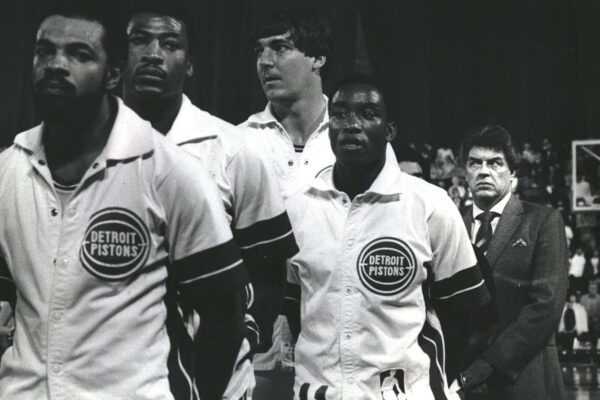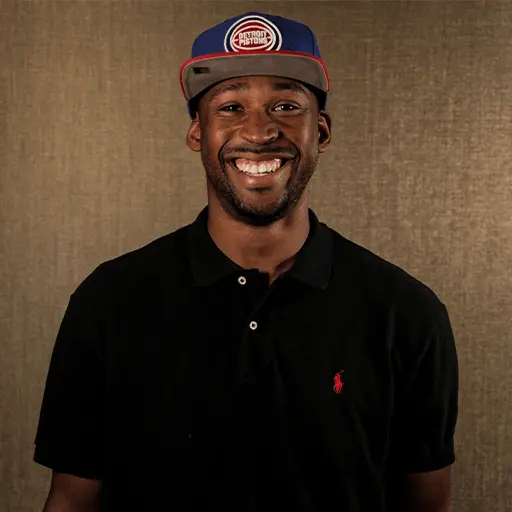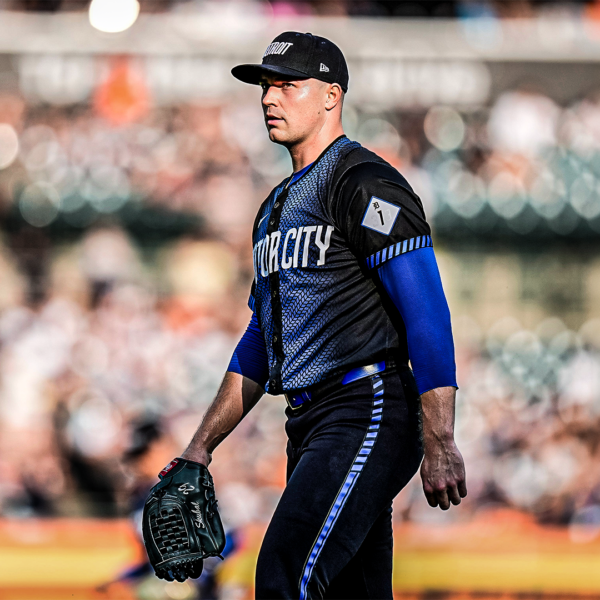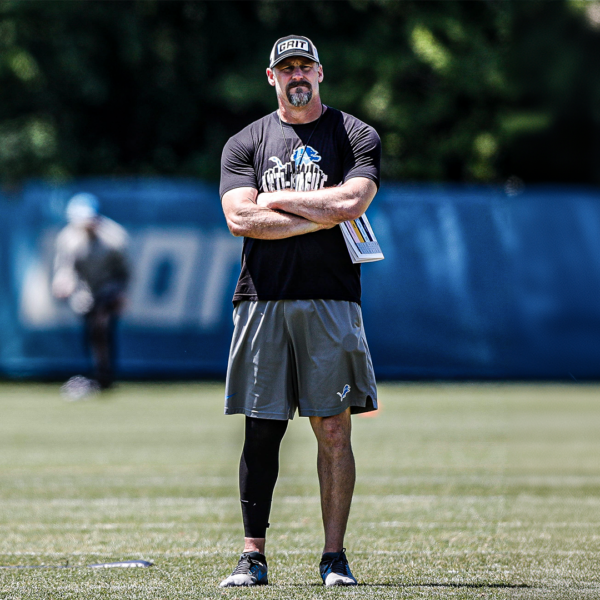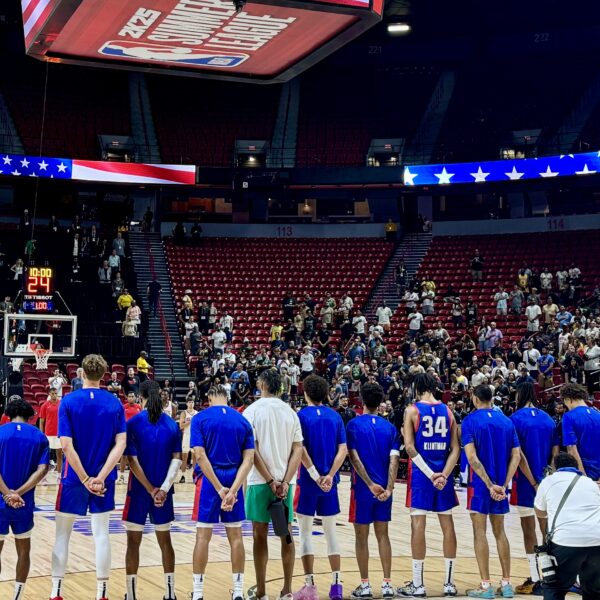A few weeks after the biggest trade in Detroit Pistons history, Coach Chuck Daly gathered his team for a brief meeting. Mark Aguirre was in and Adrian Dantley out in this 1989 blockbuster.
Daly did not like the way his team was playing. The Pistons needed to be better on defense. The offense had slipped and Daly worried that the Pistons would not win its first NBA title in franchise history. After the meeting star guard Isiah Thomas asked assistant coach Brendan Suhr how many games they had won in the last 30 games.
“We’ve won 27 or 28,” said Suhr.
The Prince of Pessimism was at it again. Daly always told his group “don’t trust happiness.” He never did. If you listened to Daly, the boogeyman always lurked around the corner. If things played out the way Daly often feared the Bad Boys Pistons never would have won back-to-back titles in 1989 and 1990. They never would have been the bridge from the Magic Johnson- Larry Bird era to when Michael Jordan took over the league.
Daly would not have a 638-437 record as an NBA coach.
And Daly never would have been named one of the top 15 NBA coaches of all time, as he was named last week. He was one of two former Pistons coaches to receive the honor. Larry Brown, the coach of the 2004 Going to Work NBA champions, was the other.
“Chuck had us thinking we were terrible,” said Thomas, as he chuckled by the phone.
Daly knew he had a talented team capable of winning it all. Joe Dumars, Dennis Rodman and Thomas are all inducted into the Naismith Basketball Hall of Fame. Bill Laimbeer and Rick Mahorn were “bump and thump,” making journeys inside the paint a hazard to your health.
Chuck Daly set the tone.
He never wanted this group to become complacent. Furthermore, he did it with a smile and a stylish wardrobe that earned him the nickname “Daddy Rich.”
“Don’t get bored with success,” he often told his team. “Don’t trust happiness.”
His words and tactics keep his team on its toes. Sometimes Daly would look at an upcoming stretch of the schedule and proclaim: “I don’t see how we can win a game for at least a week.”
He kept that edge, but remained a father figure to Rodman, a mentor to all, and a friendly face to give advice.
“Looking back, what made him so special was that he was a players’ coach,” Thomas said. “We did not recognize it at the time and I don’t even know if that was a word back them. He wanted to make sure players had input in the game plan.”
Well, he did and he didn’t. Daly often tricked players into believing changes in strategy were the players’ idea. He wanted things done his way. but he wanted players to feel like they had input.
Here is how he pulled it off.
For instance, he’d suggest more pick-and-roll plays between Thomas and Laimbeer. If the team disagreed he did not argue and would let it go. If things went south, he’d bring it up again two or three weeks later.
“Do you remember when you guys talked about doing more pick and pop with Zeke and Laimbeer?’ He’d tell his team. “Well let’s do it.”
And they did. Everybody believed it was their idea. Brilliant.
“I know how special he was,” said Thomas. “We did not recognize it back then.”
Daly often said he was not coaching 12 players. He was managing 12 corporations. He needed to get the most out of them with a minimum of wear and tear on the body and the brain. That’s why grueling practices turn into 15 or 20 minute jogs as the team began to age.
“He met us when we were young men. We did not have wives or kids,” Thomas said. “He watched us grow from young men into men with wives and kids. He was smart enough to recognize the growth, which is kind of unique.”
Chuck Daly refused to deviate from a game plan that worked. Many coaches believe they needed to mix things up.
During one game, the Pistons ran nine consecutive pick-and-roll plays with Laimbeer and Thomas called “Four Out.” They scored eight times. Utah called a timeout to reset its defensive strategy.
During the time out, Daly remained silent. Finally, when the buzzer sounded to summon the teams back onto the floor, he screamed. “Four out.”
Sometimes Daly did not speak during timeouts. “They are grown men,” said Daly. “I wanted the players to figure it out.”
“The first time it happened it was kind of weird,” Thomas said. “Sometimes you need a rest and it is not strategy. And sometimes rest is strategy.”
Follow Foster on Twitter at TerryFosterDet.

